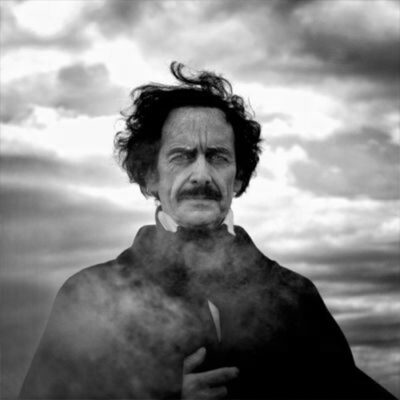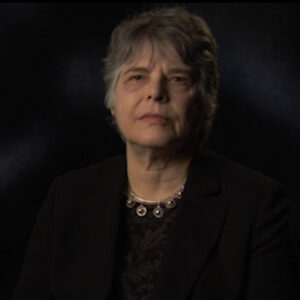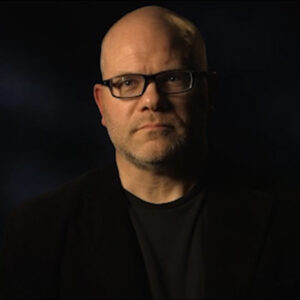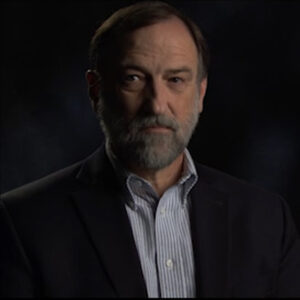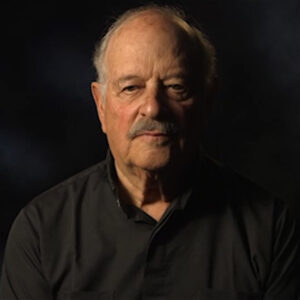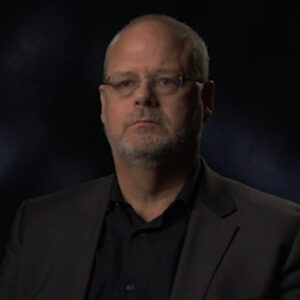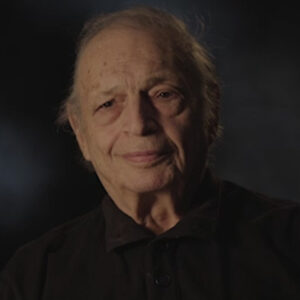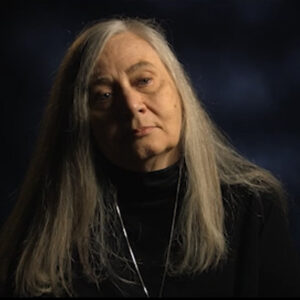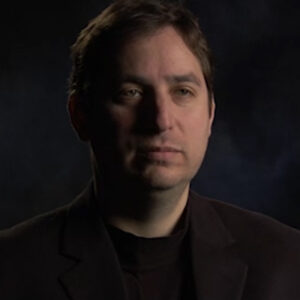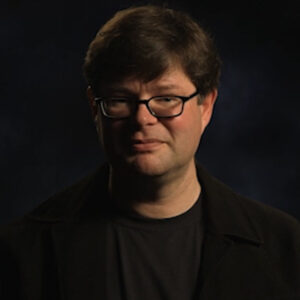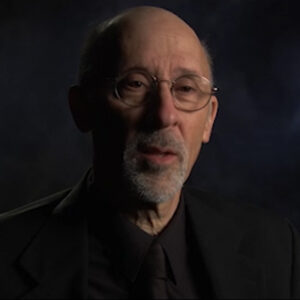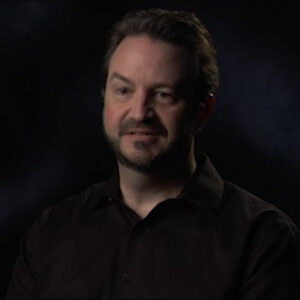Speaker Can you give a sense of when home begins to emerge as a young man, as a real is a serious power, not just an imitator?
Speaker Well, poet, in a certain sense, is Bornholm at the beginning because he’s so self-conscious about himself. He never had a doubt about his genius and and that the importance of what he wanted to do. So an early poem like Ulanoff is clearly a piece of juvenilia, but it has absolutely brilliant things in it that are as good as anything that he did later on. And that’s a poem that he said he wrote when he was 17 years old. The so in terms of the public. He doesn’t really begin to come into his own until the 30s and his his most productive and important years are the 40s. So in the last 10 years of his life, but already in the 20s, he’s very clear about what he wants to do. And he doesn’t really change. It’s not he’s not the kind of writer who evolves into something that his own work has generated out of him. He’s complete like Alexander Pope from the beginning. And so the work is already interesting right at the start.
Speaker That’s really interesting. So Tamburlaine, his first collection. Yes. Which he doesn’t even put his name on. Yes. What do you see as the influence?
Speaker Well, that’s see, that’s interesting that he doesn’t put his name on it.
Speaker The because one of the starting again and just say it’s interesting. His first collection, Tamburlaine.
Speaker Well, Poe’s first collection, Tamerlane, is particularly interesting, not least because his name is not on the title page. The central part of his work is a revision.
Speaker Serious revision of the romantic inheritance that comes out of his chief interests and influences are, first of all, Byrant. Without question, Byron is a dominant presence. He’s almost channeling Byron, and that’s true from the beginning. And after that, Shelley and I would say after that, Thomas Moore, the great songwriter and Irish Patriot and so forth, and then Kolaric, but not Wordsworth or any kind of a writer who is committed to certain kind of moral convictions and using his own work as a vehicle for expressing them from the beginning.
Speaker Poe is interested in what we came to, came to be called Opteron sake.
Speaker So Tamburlaine, without Poe’s name on it, is already a good instance of this impersonal romanticism that he develops. The all of his poems, every single one of his poems is mediated by some kind of a voice that is not his voice. And so the what happens in the poems is that Poe manipulates these imit. They’re basically images of characters in narrative situations that become vehicles for his own ventriloquism. But it’s not him. He will not speak in his own voice. It’s as if you’re already in Willes position where he speaks of he says, give a man a mask and he’ll tell you the truth. And that’s really the heart of Poe masks that he manipulates in order to tell truths that people often found extremely uncomfortable.
Speaker So how do you, uh, let’s just so you want to go out, I just the idea was that were.
Speaker Alex is coming back and, you know, I think he’s going to stay on it, OK? I’m his mother because he was orphaned at the age of two or three. His step family, a foster family, never quite to come in with great love. You have this friction with this foster father. How do you see those personal. Difficulties and tragedies reflected in his early poetry.
Speaker Throughout his poetry, it’s not just the early poetry. The subtitle of my book is Alien Angel. He’s alienated from the start.
Speaker I can do that. Yeah, they’re actually done and they’re getting out of here.
Speaker Well, you know. Yeah, I’m sorry. Sorry. That’s all right.
Speaker Yeah, he’s. And in this respect, the Baron influence is completely understandable. It’s just that both of them very, very early are born in a state of mourning. The all of Byron’s poems are basically poems about loss and mourning. And he had a similarly very difficult childhood, abandoned, sexually abused. So the similarity between Paolo and Byron is quite remarkable.
Speaker And it provides the way they think about the world in the way they see the world loss, loss and fear to great subjects and both of their writings.
Speaker And Alien Angel, what does that refer to?
Speaker It refers to his outsiderness in America, the famously, of course, although Poe is our first world poet. No question about that. Recognized by the greatest figures in the late 19th century, Baudelaire, Mallam Swinburne into Valory, never not recognized for his importance, but a prophet not recognized in his own country. That’s definitely true, and especially not in the Academy. The Academy has always had a great deal of difficulty with with Poe. Not, of course, popular readers, ordinary readers, the common reader. He’s always been a very, very popular writer and figure and has been a in an endless ways by all forms of popular culture, film, graphic arts, music, everything. It’s as if when artists in different media, working in different media come to him, what they want to do is to channel him in another medium. And some of the greatest works that he produces are producers that works that have been produced by others. It’s one of the signs of his genius, actually.
Speaker That’s very nice. Yeah, I have to say, I find it myself, I’ve just got to say that while it’s possible I could. Yeah. Kind of push myself to something. Yes. When he was a young man, what it is, is, I mean, in the 20s and 30s, 20s and 30s, what was he doing?
Speaker There was new and different than poetry in American poetry or in English?
Speaker Well, he’s trying to wrest the poetic expression from the personal attachment to the poet. The poet genius. Yes. He is certainly aware of that. And he even sees himself in that way. But the actual forms that he produces are moving away from the kind of personal forms that we associate with Byron, which is such a large influence on him. That’s why music is so important for him. Music is is not so important for Byron, although many of his works or translated and remediated in musical forms, many, many.
Speaker But DPO from the beginning wants to make poems that are aspiring to the condition of music, as Peter famously said. And if you’re aspiring to the condition of music and your expression, you are not aspiring to self-expression, that you’re trying to make things that, as it were, have an absolute existence of their own. So that’s the first thing. And related to that is, of course, the art for art’s sake, that the poem is not there to convey a an uplifting message or even a depressing message. Messages or what he called the heresy of the didactic are secondary considerations to any poetic expression. The and they have to be treated. William Carlos Williams later on was the person who first saw this. They have to be treated as if they were formal elements in the poem, every bit as formally important as Meeta, the prosody, the imagery, all those other formal things that we know about. You have to treat the ideas of the poem in exactly the same way. That’s the principal reason, in my opinion, why he becomes so foundationally important to modernism and 20th century writing.
Speaker Nobody really before that had seen that so clearly. And but he knows it from the beginning.
Speaker You asked about his early work, the early work. It’s already there in Colorado and in Tamerlane. Tamerlane is for me, a less interesting work, but it is a good example of this masking device that he uses. Tamerlane is actually not Tamerlane timeline’s biron. And so it’s like a double mask because he uses both of these figures in order to say what he wants to say.
Speaker Let me ask you more about this. Is the heresy that that tactic, because I’m concerned public TV viewers, I think, have an intellectual engagement of about an eager eighth grader. What you’re watching TV? I think we all do when we watch TV. Right. Something’s up passive about it. Yes.
Speaker So you could take that apart a little more and explain what is it? The pope was saying that. The politics and didacticism have no place in poetry.
Speaker Well, I mean, no human being can express him or herself without speaking in cognitive forms.
Speaker I mean, we all use ideas. And in poetry, of course, you must use ideas because you’re working with language. If you were a musician, that’s a whole other matter, which is exactly why, however, poets are interested in music and why he sees poetic expression as a musical medium and end device. So for Poe, this is very typical of 19th century, actually the proper. Expression of a poem is the recitation of a poem, his theory of poetry is all about the recitation. He has a famous essay called For Many People, an infamous essay called The Rationale Verse. And it’s a what it what its title suggests. It is an explanation of how prosody and verse ought to work in forms. But the whole aspect or thrust of that particular essay is that you have to think about poetic expression and musical form in terms of recitation or the performance. The way a piece of music is meaningless unless it is performed by a musician or a group of musicians or whatever it needs performance. And that is absolutely the approach that that takes to do his work. What was it like to be a poet or writer or an aspiring writer trying to make a living in the horrible, truly horrible a publishing industry in the United States at that point is impoverished? It is in a certain sense, because of copyright laws enslaved to Europe and especially England. So for writers, unless you had an independent existence or income like a lawyer or something like that, you were scrambling for your bread. The the life story of Poe is, for me, almost too painful to read. Even the most and the least sympathetic biographies are are painful. And his life was never not difficult. And most of his life was so catastrophically difficult that, as I say, it’s it’s difficult. The so he’s writing for the magazines in the United States from really the 18th century on until about 1850 or 1860. The principal form of literary expression is through magazines and periodicals. Those are often controlled by religious organizations. Not always if you track the publication history of these these venues, many of them only last for six, seven, eight, nine months. They get subscribers. The subscribers stay with them. They get bored, they wear themselves out and they’re gone. It’s the fastest, most difficult kind of world to live in and it pays nothing. So and indeed, until about the mid 20s, most writers who wrote for periodicals did not get paid at all. The editor got paid, but you contributed and you contributed because you wanted to advance enlightenment or something. But coming into the 20s, late 20s, 30s, then people begin to get paid, but they do not get paid well unless you are famous. So there is a constant quest to make yourself publicly apparent. And Poe is very much a part of that. But he was not actually very good at it, even though he was well known. Certainly certain of his works were more spectacularly successful. The balloon hoax, the raven, of course, but he was a difficult person, not especially well liked because his critical reviews and Wilson said he was the greatest critic that America.
Speaker It’s always the strongest, impossible to find a way. Yes, actually searched far and wide around Berkeley, but this is the best we can do.
Speaker That’s why we always have somebody to be there to do a difficult.
Speaker You’d be better off in Virginia. We have a couple of utterly silent rooms for this kind of thing.
Speaker Yeah, I checked with Berkeley that the bureaucracy was taken months.
Speaker I the I did some recitations at the VA in a really wonderful place for Penn Sound, you know, Penn Sound. Oh, it’s really quite a good site to become aware of. It’s a Charles Bernstein, the great American contemporary writer poet was one of the chief founders of it. And what it is, is a place where poets and people like myself who are half poets go and do recitations usually of living writers.
Speaker Now that that’s mostly so in fact, it was it’s so much so that I complained to Charles about it. I said there are American writers of great importance for that kind of project that you’re after.
Speaker Who should be part of this? So I he asked me to do Poe and other people have done, you know, like Whitman or Dickinson and so forth and so on. It’s all I went, yeah, it’s really good. You must look for it. Yeah.
Speaker Well, yes, I think you were just saying that.
Speaker Yeah. Poet Edmund Wilson said he was the greatest critic America ever produced, but he was a very severe critic, partly because he had such clear ideas about what he thought writing should look like. And his severity is a function of the dominant quality of American writing at that time, which is devoted to the pursuit of ideas about social progress, which Poe does not believe in. He finds it a contemptible idea. And so he is in an antithetical relation to some of the most some of the dominant ideological lines that are in play at that time. But his his technical skills are such that people want him to be revealing because they recognize a person who understands how to tell the truth, as it were, about what what he’s reading at. But he doesn’t he doesn’t hold back. So he was famously known as Tomahawk Po. So the the critical work is, again, very much a part of the of the poetical work of the prose, for that matter. The the thing about Poe is that his work is so much of a single piece. One of the most interesting things about the prose work, both the nonfiction prose and the fiction prose, is that because of his involvement with periodicals where you’ll read a periodical and on the first page, it might have a short story and the next thing might be an essay on Egyptian antiquities, and the next thing might be something on the Mississippi River.
Speaker So there’s a montage of different kinds of things, fiction and nonfiction. One of the most interesting early American writers, Charles Brock and Brown, begins to exploit that. And in such a way that it’s often difficult to tell when he’s writing fiction or whether he’s running on fiction. That is absolute quality that Poe picks up on. Many of the stories, as you know, are presented as if they were essays and the essays, not least of all the philosophy of composition, is very usefully read as if it were a story rather than as if it were an essay.
Speaker So the the nonfiction, the fiction, the poetry at all interpenetrated. Although I would say that the poetry stands apart because he saw poetry as the highest form of human expression.
Speaker And so the poetry does not is not after truth in the way that the stories and the non-fiction is what he would call the truth. What it’s after is beauty. And he sees music as the as the supreme effort to achieve and engagement and an expression, a revelation, really, of the beautiful.
Speaker Are you picking it up?
Speaker We can’t stop this for the people. Yeah, exactly the acting. I’m going to tell Alex to turn off the radio because he saw himself.
Speaker And maybe you don’t agree, but I feel like he saw himself on this mission to elevate American literature and to put it on power, not to imitate English literature, to be its own, but every bit its equal. Yes. Can you talk a little bit about that?
Speaker Well, he always wanted to have to be the editor of a periodical that would be the vehicle for his most basic cultural commitments and writing commitments and artistic commitments. And so he was, in fact, editor of the Broadway Journal. The he was an acting editor for several magazines, in fact. But that idea of having his own periodical that he could have very good graphic materials, that it would be printed in an excellent way, that its contributions would be of the highest caliber as he saw them all that, yes, it was at the heart of what he wanted.
Speaker And in fact, he however, he never achieved it always. He was caught, entangled in the difficulties of having to make his way in an economy and commercial engine that never adequately gave him the money to live on.
Speaker So he this combined with the what do I want to say to the equivocal character, the ambiguous character of his position in the literary world of the time, created it made it very difficult for him. On the other hand, it’s exactly what made his work great, the antithesis of his work. Only Melville, in my opinion, not even Hawthorne, only Melville really has achieved a similar kind of critical position to be able to see his world with a kind of cold clarity. It’s it’s very clear and beneath the Sarino. And certainly I won’t go on about Melville, but Melville is a similar kind of character, but upo certainly the same thing. Critical, the his view was that 19th century America.
Speaker Well, in some of its most interesting work is what is called marginalia. There’s a long set of marginalia that he created. They were actually not marginal comments, but they were in the imagination of what marginalia might be. And in one of the marginality, he speaks of his country and his time as so degraded that it would require. I’m not quoting it exactly, but it’s something like this.
Speaker And it would require a prophet or a preacher like Saint Francis to. To save us from our beast realizes the terrible and yet terribly accurate thing to say that one of the most remarkable periods in American history is the period of his lifetime. And when he flourished, the 30s and 40s, Jacksonian America, vicious, unbelievably vicious, and the commercial world vicious in this in the way that a kind of uncontrollable capitalism was was running things, basically. So. Paul. Is writing not really to correct this? He doesn’t really as it comes back to not having any. Faith in that central idea, so-called American dream of progress, he has no faith in that whatsoever. He thinks it’s hypocritical and an illusion.
Speaker Yeah, right. I mean, there are recover my strength, you were talking about the gruesomeness of Jacksonian America. Yes. I didn’t see his mission is to address that.
Speaker No, it is not. His mission is not to address it or correct it. It is to reveal it.
Speaker And in that respect, it’s a different kind of poetry.
Speaker It is not a poetry of didactic force. It’s a poetry that in a very traditional indeed an ancient sense is an imitation. The there’s a famous adream that Whitman had about Poe. And the brilliance of that dream is that in his imagination of how he sees him as what he calls the center and victim of the world that he is representing in his work, Poe never had a sense that he was not complicit in the mechanisms that were used for cultural expression.
Speaker He was himself part of it. And it’s like you said, a thief to catch a thief. You know, in order to tell the truth about it, you have to know that you are part of that truth. And he was deeply a part of that truth.
Speaker His detractors, of course, hold it against him and hold it up to him as if, oh, well, here we have a hypocritical writer. We have a plagiarist, all those things that he just that he attacks other people for all that is absolutely true. Which is why when when his artwork deals with it and means to reveal it’s the expression itself is believable. You know, this person knows what he’s talking about. It’s very moving.
Speaker If you want to want to go there, you may not want to go there, it’s scary because it is a world of fear that he himself is part of that is his dominant subject. Fear and fear is not something that comes at you from outside. It’s something that you generate from inside the famous Tell-Tale Heart and all sorts of many of the stories. Explain that, or at least I shouldn’t explain it. They don’t explain it. They show it. That’s why they’re so scary. They don’t explain anything. If you get an explanation, you you can I understand. But if you get a showing, you actually don’t understand. You have experienced it and you become part of it yourself.
Speaker It’s great. I hope we can use it. And these people just keep coming.
Speaker Well, let me ask you a little more about that.
Speaker He made his famous comment like the most famous spell he was accused of stealing or appropriating in German Gothic stories and plots and and using that kind of terror.
Speaker And he said all the terrorism out of Germany, the terrors of the soul. Yes. So what was he talking about?
Speaker Well, he’s talking about the subject that makes him so universally interesting, the fear you can’t except for sex, you can’t get anything more human and fundamental fear. So to make that his subject immediately makes him if you want to go in this direction, what I would call a political writer, a writer who is talking about his society and the aspects of his of his society, that the society itself is incapable or unwilling to see or look at because they are, in fact, fearful. And so the the force of the writing is to go there. Hawthorne certainly goes there. Melville certainly goes there. But it’s, for example, exactly where Emerson will not go the Emerson once. It’s not as if Emerson doesn’t understand the fear, but his cure for fear. And it’s very much the same cure that that Whitman will pursue is to see the world in a positive way to take it positively. It seems paradoxical or maybe perverse to say if you want to live a life of at least some kind of happiness, you must see it darkly. And yet that was what Poe.
Speaker I would say, yes, that’s really good and I think we’re going to call the film Edgar Allan Poe Buried Alive. Yeah. Originally as the mystery of Edgar Allan Poe, but we’re never happy with that buried alive so much more.
Speaker I like it. Yeah, I like it very much. The because he is still buried and he is still very much alive.
Speaker Um, so his his attacks on Longfellow is on the list. Yes. Talk about what? What was that really about.
Speaker You know, that’s very interesting. I, I, I truly am uncertain about this. The uh. Yes. I suspect it has to do with Longfellow’s investment in New England culture and that and being a fellow traveler of the transcendentalist movement and transcendentalism, Dupo was the ages chief Malti. So I think Longfellow’s success, the comfortableness of his life, those things got at DPO at times when he was vulnerable and was capable of doing what he did. His his accusations that long for a long, long fellow war are not his finest hour, I must say. And I suspect if I were to look into it and I as you can see, I haven’t really studied this at all, but I think that one would do well to to look very carefully at his life at that time.
Speaker What’s happening to him? Why that he suddenly burst out like this? He didn’t burst out at other times and there was nothing especially antagonistic about Longfellow. Longfellow was actually a very decent man, very generous man. Why he should have gone after him that way, I confess, I don’t know.
Speaker What is there I’m sorry, sort of jumping all over the place, if that’s OK, but.
Speaker Can you talk about one of those poems that you think is so representative or really emblematic of what he did that was so powerful and so successful and end quote, a few lines, if you can, or.
Speaker Well.
Speaker He has some people say he has only two or three great poems, it seems to me that the corpus itself is a significant thing. But I would also say that Uloom Annabel Lee, obviously the Raven sonnet, the science dreamland was jump out at well, and of course, the conqueror worm, always the conqueror worm. The these are really splendid marks. They’re all very similar works. The Take Accountability, for example. Very late work. Annabel Lee. Is a poem that is in the most perverse way, channeling Dante. What lies behind that poem is Dante is famous in the world, which is about the death of a beautiful one.
Speaker But that fundamental subject in Dante’s case is Beatrice. And she dies. It’s taken off to heaven and she becomes the muse that generates to be the Mina comedia.
Speaker Well, Annabel Lee is the same story, but it’s in a typical Poe fashion, turned upside down. And the the demonic figures in the story are the angels and God who take Annabel Lee away because they envy the love of an ability and her poet, and so they kill her. That’s the story he tells. It’s the same story as the villain of a God wants her and beat. In a moment, he says she’s so perfect that we want her here and all the angels need her here. Slight change in Annabel Lee. It’s not that we want her here. We don’t want her there because she’s making too much trouble and making the world happy for her poet. So we’re going to take her away. We will kill her and they do. And so the poet writes Annabel Lee, this elegy for her in which she says, well, if you’re dead, I’m going to be dead, too.
Speaker And so, my darling, my darling, my life and my bride at the end, the ending of the poem that has often been a scandal to to readers that Poe is deliberately choosing a necrophiliac love affair that is such an impoverished, in my opinion, a way of understanding what that poem is about.
Speaker This poem is about the the.
Speaker How does one say it?
Speaker Being willing to go anywhere in order to be with the life that you regard as necessary. And if it takes the figure of death to to achieve that, that’s proper from his point of view, because the conditions of life are illusory conditions. So you choose this. People are horrified by it because people think of death as something that’s not part of life. And I’m really talking about myself or my way of reading Poe. But it is a common thing that comes out of our Judeo-Christian tradition to think of death as a gate to another existence. But to me and I think Poe certainly saw this death as part of life. It is not separate and it is not a gate to something else. It is here and now always.
Speaker We interviewed Roger Corman, you know, the great beef. Yes, sure, he said exactly the same that yeah, great amount was all about the death.
Speaker Yes, yeah, that’s the Ravens. The Ravens.
Speaker What did it do for Powell and how did he regard what was his did he have ambivalence about it except not the success, but about its quality?
Speaker No, he had no doubt about its achievement.
Speaker The his famous philosophy of composition essay on the poem, however, is a perverse joke at the expense of people who, from his point of view, do not really understand about poetry. The you may remember the essay opens with a reflection on the most common view at the time of how poets work.
Speaker They work by a kind of fine frenzy. They don’t know what they’re doing, but the God descends to them and suddenly they speak in tongues.
Speaker And Poe begins by saying, actually, this is not the way poetry works.
Speaker It’s not. And anybody who thinks that’s the way it works doesn’t understand. And anybody who actually writes that way is going to be a very bad poet. Now, take the raven, he says, actually, I’ll tell you how I made it. And then he marches through the famous essay. Now, people, of course, I’ve always had trouble with that. I say, is he serious? Is he not serious? Malcolm has about fifty words on that essay that have never been surpassed. He understands perfectly well that it is a send up.
Speaker He understands perfectly well that it’s also serious. That is the expression of a person who understands that when you make art, it is hard work and it has to be done with an immense amount of self-conscious care. On the other hand, the it needn’t be in this particular way. This is a kind of story about how a poem is made. But to try to read it literally is to actually misunderstand both the poem and the explanation of the poem.
Speaker And talk a little bit about the poll itself. What did you do there? Why was it so?
Speaker Well, I can’t explain why it was so incredibly popular.
Speaker I can tell you why I am interested in the biography often comes in to confuse, in my opinion, what is going on in that part, as if the person in that poem is pope. It is not pope. There is a person in the poem who is in a kind of Robert Browning mask situation.
Speaker He’s he’s speaking and he’s clearly a literary person. But we don’t know what kind of literary person he’s sitting in his studio or his study and then the raven comes. So we have that classic Poe situation of him channeling himself through a character.
Speaker The drama of the poem is that the character is mourning the death of the famous loner. But as the poem opens, it’s as if he has forgotten her. This is exactly the same story as you Lilium and many, many of the other poems, and he has forgotten her. So the Raven is introduced and starts to speak, you know, in ways that force him to start thinking about Lenore. He he begins by saying the birds.
Speaker What’s he talking about? It’s not really important, but it does remind me of Lenore. And the further he gets in and the more that he engages in this non dialogue with the with the bird, the more this horrible sense of loss and fear are revealed to him. So what you get is the revelation of a person who has forgotten something extremely important to him. In fact, the person whom he most loves. And at the end, he arrives at the situation where he remembers her and knows that he will never forget her and knows that she will always be lost to him. So he’s in despair. But what’s happening, of course, is that this is like the conqueror worm. This is a play that is being performed by none other than Edgar Allan Poe. And so it’s like like a scene from a drama. So you have to watch the poem rather than, as it were, sink inside the speaker of the poem. You want to sink inside with the speaker of the poem because that’s where the effect will be. But you also have to stand outside the poem and be in POSTPOSITION as you watch the effect develop. That’s the greatness of the poem, in my opinion.
Speaker You use you at the same time you’re in a completely aesthetic condition and at the same time you’re in a completely affective condition of fear and loss. The. Sarah, Helen, Walt Whitman has a wonderful book on power and in my opinion, has expressed a central.
Speaker Quality, appose ethos that he lived in a constant state of fear, that he was neglecting to remember the dead, that constant sense of fear and longing for those who had died and that he was responsible for not remembering them. It’s a brilliant insight into the really the dominant ethos of the poetry, this commitment to things that are lost and that poetry has to save that. That’s really what all of his writing is about, saving the dead.
Speaker Uh, what kind of a silly question, given everything you’ve said so far, but just to have as a self-contained. Sure.
Speaker What was his influence on American writers? How important is it and why why do people think I mean, I guess this is all getting this idea of why do so many people think of him as an outlier and sort of on the on the edges of American literature?
Speaker Well, the the academy in the past, forgive me for going this way, but there have always been. Two great. Sources of. Ideological ideas for a culture or a nation, a society, the church and the educational institution, the church in the United States has always been in a secondary position, in my opinion, despite the Great Awakening from now and again.
Speaker But the educational institutions have been very, very important from the beginning and they remain so.
Speaker The we know that POW remains extremely popular in popular culture and with ordinary readers and artists and so forth, but not so in the Academy, with some exceptions, I have to say. But why this should be so, I, I suspect this is my own view. I have to say that ordinary people are more modest and less pretentious and people who are in the business of education and enlightenment. If you’re in the business of education and enlightenment, you probably take yourself too seriously. And one of the beauties of Poe is that he he’s a comic writer as well as a serious writer. So he doesn’t take himself that seriously. Ordinary people, I think, in my experience, certainly don’t take them anywhere near themselves nearly as seriously as academics themselves. And so Poe’s popularity and fame in the world of popular culture is a kind of scandal for the American Academy. It’s never been, of course, a scandal in Europe. And when you think of the the dominant line that generated what we call modernism, the line that comes out of Gosha, out of Baudelaire, out of Malama, out of the French writing of the late 19th century flowback and so forth into the 20th century, dominantly influencing T.S. Eliot, Eliot saw this. Eliot despised Poe, and yet Eliot couldn’t get free of Poe people. Think of only that late essayed that 1949 essay on Paul and Valerie. But Paul but Eliot has written four essays on Poe. He could not get loose of him. And in that last essay, he says, Well, it’s perfectly clear that the modernism that I admire most is dominantly influenced by Edgar Allan Poe. And for all I know, he may have been a major influence on me. And the story. The I greatly admire Eliot for for that kind of honesty, both in acknowledging that which is certainly the case, but at the same time expressing his distaste for Poe’s language. I want to say something about that language, actually, because the language to me, it is an important feature of his writing in the sense that Whitman was talking about when he took it, when he spoke of him as being the center on victim. Byron says good workmen do not quarrel with their tools. There was a language or a set of languages that Poe necessarily moved in the the languages that one recognizes in the periodical literature of the time, he does not come to that language in order to undo it. He comes to use it. And so the what we may well see as a kind of trashy language is his tool. And he will use that tool as an expression of his time. I think that, Eliot, as many modernists had a revolt against what they saw as Victorian language, PO does not revolt against the Victorian language. He uses Victorian language. And I think Eliot made a mistake in not understanding that. There’s another essay by Elliot where he talks about Tennyson and it’s clear that he understands that Tennyson, my one of my my my friends, a great Tennyson scholar, speaks of In Memoriam as an epic of cliche. And it certainly is. And Poe is certainly a poet who is not afraid of cliches. And it’s a miracle, actually, that out of such a discursive field, he should have produced what he did produce.
Speaker Oh, uh.
Speaker So if you could tell a little story short story about how the French, the most of its resurrected, discovered post genius or whatever, brought genius back to the US, however you might characterize it. But what happened in the 60s, 70s?
Speaker Well, Baudelaire’s is the is that is the pivotal person of the year at that time.
Speaker The.
Speaker The false Napoléon, the world of the false Napoléon comes in, it is from the last point of view, from Flobots point of view, a time of totally degraded culture, totally self deceived culture. And so when what Baudelaire sees as important is the recovery of affect and writing that will be able to recover affect at that time, the same situation is in play in the United States, slightly differently inflected, and the same situation is definitely in play in England. So from if you look at the period, say, the 40s and into the 50s and the 60s, the three pivotal figures for the coming of what we would see as modernism are DPO, Butler and Swinburne and all three of them are saying exactly the same thing. Poetry, by committing itself to certain kinds of high minded moral ideas, is losing. Sex affect a an experienced relation to the world, and so you write Flowers of evil or you write sanitoria or you write these poems that were completely shocking to the readership at the time, that is to say, the the cultivated readership, because these are writings that are driving people back to primitive conditions that they perceive as necessary if you’re going to have a renovation of culture.
Speaker And what did they see? I mean, how how did they resurrect power mechanics?
Speaker Well, power for Baudelaire, it’s not so much sex because sex is well, one can certainly see sexual what force in his writing. But what Poe is interested in is fear, which is every bit as fundamental as sex. The Baudelaire is much more interested in sex, but he goes to Poe and translates fear into sex. The Swinburne is another swimmer called Poe the complete genius, and he went to Poe for comedy Gothic Fear. And like Baudelaire, he translates that into sex because for bourgeois culture, the most fearful thing is sex. That’s what’s really scary. So oddly, Poe, in this sort of asexual way is generating these highly eroticized writings that we associate with with Baudelaire and Rumbo and and Swinburne and Rizzotti, for that matter. I mean, all this is very much of a piece. And it’s very interesting that Poe should be such a source for this because he is slightly deflected from it. But I suspect from Posehn, say, Swinburne’s or Rambo’s point of view, it’s exactly because sex is not his subject, but fear is a subject. There’s a certain sense in which it’s an even more fundamental subject. Sex is a form of or a place where fear is in play, but there are many other ways of being encountering fear.
Speaker And how did that jump back across the Atlantic?
Speaker You mean back to America or in this place?
Speaker Well, there you know, there’s there’s a whole other tradition of American writing, the. You don’t have to read American writing through Henry James. I don’t want to say anything about every, you know, negative about Henry James. He’s a very, very great writer. But the there there is Jack London. Jack London is a very great writer. There is just Postles there. There’s a form of writing that is much more interested in sensational designs than in high cultural designs. They’re both after the same thing.
Speaker But well, to I’m not quite sure whether this is useful to you in this context, but James is really an interesting case because James, one of his most famous stories, is a Gothic story, deeply Gothic story, and the Gothic is very much a part of it.
Speaker But much of his writing is in an effort to to exorcise the Gothic and and really to go away from it and in the same way that Sy Emerson or Whitman wants to go away from it. But oddly, as his life goes on and certainly with the catastrophe of the First World War, he certainly saw it as a catastrophe. Things only got darker and darker for him. And the a spy novel like the Golden Bowl, it’s a very interesting novel about sexual betrayal that at the end, you may remember our heroine goes back to or moves to take him back. So that it’s a it’s a it’s not a novel. Most novels want to end in a marriage that’s the moral center of novels have them end in a marriage. The wonder about the Golden Bowl is that it doesn’t really end in a marriage. It ends in a move to possibly. Save a marriage, but possibly not. It’s quite, quite nice how said that something like this to you.
Speaker I can’t believe that girl had signed up for.
Speaker Is it fair to. Well, we’ll be able to study this stuff with.
Speaker I don’t know many people that I just wanted to ask about the other the witnesses there, women been, so my understanding is that Wittman’s.
Speaker I think they’re walking by. Understanding is Whitman said this after he had been to this ceremony. Yes, it was disinterred and reinterred and somebody asked them and Whitman was at the ceremony but didn’t speak about them, told someone else afterwards. Yes.
Speaker He heard about the ceremony and might actually just setting up for us because we’re going to try to make this film without a narrator. I don’t know if it’ll work, but if you could just say, yeah, yeah.
Speaker In the mid 70s, it had been a movement by Poe enthusiasts to set up a monument for him in Baltimore and it finally succeeded. And so the monument was set up and a ceremony was set up and various writers were invited and so forth. Nobody came other than very insignificant people except for Walt Whitman. And he comments on this that he was the only writer of consequence who was actually at the ceremony. He he wrote up a short newspaper article about the the event and that became the essay that goes into.
Speaker Specimen days and collect called the significance of Edgar Poe v. The essay is a wonderful piece of American writing because he talks about how he really disliked Poe. He had met Poe actually in the 40s when he was a journalist, very briefly in an inconsequential way. But he knew his work because it was celebrated and he did not like it. It was dark. It was I mean, Lohengrin reading, you know, the Marquis de Sade or something. So that was his his view of how for a long time. And along comes, of course, the Civil War and his remarkable engagement with it in the hospitals. Along comes the aftermath, the so-called reconstruction. That’s the darkest time for Whitman. He also falls ill and is crippled, so he writes Democratic. This is a very, very dark writing and as far as I can see, it draws him back to power. And in the essay, he basically says there are three kinds of writing in the 19th century. There is me, of course, he always begins with me and that’s the best. He says, of course. That’s no question about that. Then there is he doesn’t have any named names. Your son, he names. I met him just I think he names Byron and he’s talking about writers who go into a darkness, but in going into a darkness, come out with a sense of having been cleansed or redeemed.
Speaker And then he says, this poem is me and that’s Poe. And then everybody else. Everybody else is that kind of romantic thing. And what Poe is, he goes into the darkness and he does not come out. He becomes a center and victim of the darkness. And then the the dream that he has as he tries to express this reading a poem, he says not only is he at the center and is the victim of the darkness, he’s he sees him as on a little sloop in Boston, New York Harbor in the midst of a tremendous storm, and that the sails are torn away, the spa’s are broken, and he’s hanging on to the ship and he’s looking at the storm in the storm and enjoying the storm at the center and the victim of the storm.
Speaker And he says that he is in this he is expressing what he calls the sickness and the malady of America. And he ends it by saying that we know it now, but what can we do about it? He doesn’t answer that question, I’m. Yes, Poe is the great revealer of the sickness and animality of America I. Sure, that’s true.
Speaker Thank you. I think.

